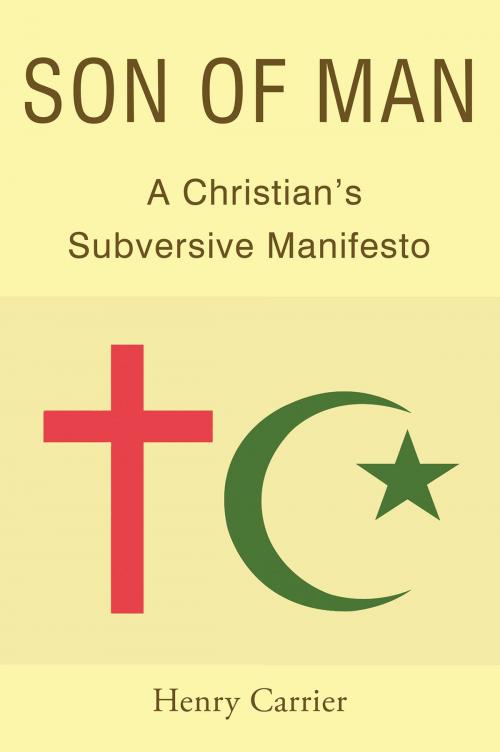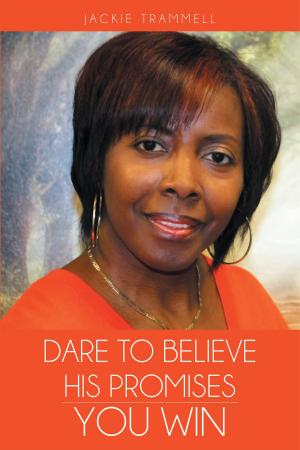SON OF MAN: A Christian's Subversive Manifesto
Nonfiction, Religion & Spirituality, Middle East Religions, Islam, Christianity, Christian Life| Author: | Henry Carrier | ISBN: | 9781640278905 |
| Publisher: | Page Publishing, Inc. | Publication: | November 16, 2017 |
| Imprint: | Language: | English |
| Author: | Henry Carrier |
| ISBN: | 9781640278905 |
| Publisher: | Page Publishing, Inc. |
| Publication: | November 16, 2017 |
| Imprint: | |
| Language: | English |
During his tenure as a college professor, Dr. Carrier taught political science and philosophy courses and travelled to over 30 different nations in Europe and East Asia. Now an author who has retired to North Carolina’s Outer Banks, where he enjoys surf fishing and outrageous sunsets, Carrier also has delved into reading non-fiction. He particularly admires authors Flannery O’Connor, Anton Chekhov, and James Joyce, whose short stories often deal with religious themes.
Fascinated with the universality of all religions, Carrier is a “committed, but non-denominational Christian,” who has been influenced by Catholic, Protestant, and Islamic worship. His encounters with Hinduism and Buddhism from his time as a Fulbright Scholar to India also have left a lasting impression.
Readers of the Son of Man can glean the essence of Carrier’s conclusions from a quote that Swiss Catholic priest, author, and theologian Hans Kung submitted at the request of Life magazine editors about the meaning of life. Kung’s quote and those from other world leaders were later published in the book, The Meaning of Life (Friend and the Editors of Life, 1991, p. 105). Kung’s quote references “this Ultimate and First Reality,” or what Carrier prefers to call “the Divine Creator”:
I have become convinced that in trusting this Ultimate and First Reality, I am also trusting that there is meaning to my life and death and to those of other human beings—even if this all-embracing meaning, in the face of an appalling amount of foolishness in the world, will often remain hidden. In short, . . . I trust, despite everything, that with my life and your life, ultimately something meaningful, good and reasonable is intended.
From this perspective, you might say that self-realization is the meaning of life. We are here to realize ourselves in order to become true human beings. But I add from my own experience: My own self-realization must fail if it disregards the self-realization of others. My realization and others’ realizations are meaningful only if they are borne and determined by something that is more than ourselves: Self-realization rooted in the reality of God Himself. This is promised us by the Judaic-Christian-Islamic tradition. Shouldn’t this suffice?
—Hans Kung, President of the Foundation for a Global Ethic; former Director of the Institute for Ecumenical Research, Tubingen, Germany
During his tenure as a college professor, Dr. Carrier taught political science and philosophy courses and travelled to over 30 different nations in Europe and East Asia. Now an author who has retired to North Carolina’s Outer Banks, where he enjoys surf fishing and outrageous sunsets, Carrier also has delved into reading non-fiction. He particularly admires authors Flannery O’Connor, Anton Chekhov, and James Joyce, whose short stories often deal with religious themes.
Fascinated with the universality of all religions, Carrier is a “committed, but non-denominational Christian,” who has been influenced by Catholic, Protestant, and Islamic worship. His encounters with Hinduism and Buddhism from his time as a Fulbright Scholar to India also have left a lasting impression.
Readers of the Son of Man can glean the essence of Carrier’s conclusions from a quote that Swiss Catholic priest, author, and theologian Hans Kung submitted at the request of Life magazine editors about the meaning of life. Kung’s quote and those from other world leaders were later published in the book, The Meaning of Life (Friend and the Editors of Life, 1991, p. 105). Kung’s quote references “this Ultimate and First Reality,” or what Carrier prefers to call “the Divine Creator”:
I have become convinced that in trusting this Ultimate and First Reality, I am also trusting that there is meaning to my life and death and to those of other human beings—even if this all-embracing meaning, in the face of an appalling amount of foolishness in the world, will often remain hidden. In short, . . . I trust, despite everything, that with my life and your life, ultimately something meaningful, good and reasonable is intended.
From this perspective, you might say that self-realization is the meaning of life. We are here to realize ourselves in order to become true human beings. But I add from my own experience: My own self-realization must fail if it disregards the self-realization of others. My realization and others’ realizations are meaningful only if they are borne and determined by something that is more than ourselves: Self-realization rooted in the reality of God Himself. This is promised us by the Judaic-Christian-Islamic tradition. Shouldn’t this suffice?
—Hans Kung, President of the Foundation for a Global Ethic; former Director of the Institute for Ecumenical Research, Tubingen, Germany















